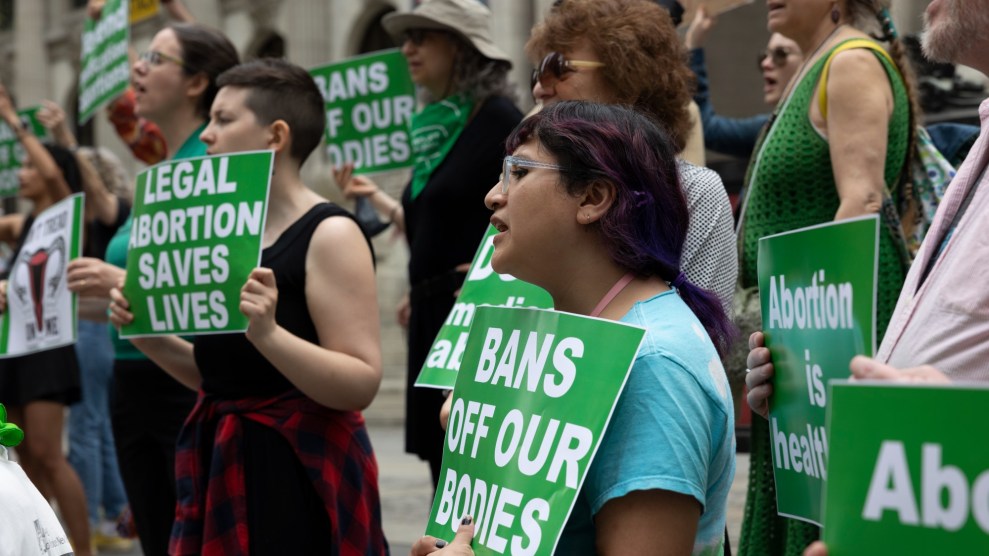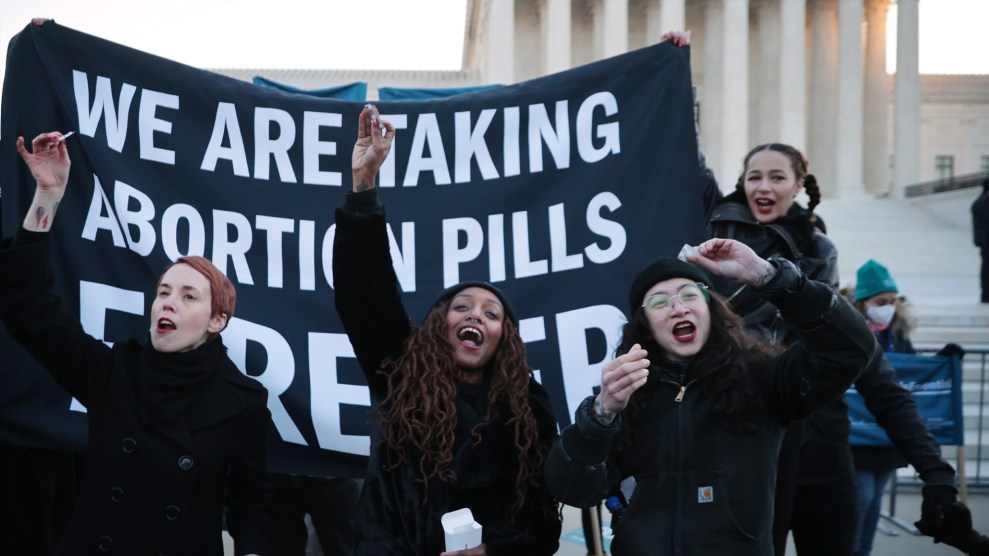
Gina M Randazzo/Zuma
The Supreme Court announced on Wednesday that it will hear a case deciding the fate of mifepristone, a pill used in medication abortion, marking the most consequential reproductive rights case to reach the high court since it overturned Roe v. Wade in June 2022. The decision could dramatically affect access to the pill and have major implications for the Food and Drug Administration’s regulatory authority.
The case traces back to a 2022 complaint, filed by the Alliance Defending Freedom on behalf of four doctors and several anti-abortion medical organizations, that centered on an 1873 federal law prohibiting the distribution of “obscene, lewd or lascivious” material through the mail. As my colleague Madison Pauly wrote in August after an appeals court ruled that the FDA had acted improperly when it relaxed certain rules surrounding mifepristone.
The Fifth Circuit ruled that the anti-abortion doctors had waited too long to challenge mifepristone’s FDA 2000 approval—and it also found that the FDA had acted improperly in 2016 and 2021, when it relaxed some rules around how mifepristone can be prescribed.
The Fifth Circuit’s decision contains bad news for parties on both sides of the case. But because of the Supreme Court’s prior order, the ruling doesn’t have much practical effect—at least for now. “This opinion changes nothing on the ground whatsoever,” says Drexel University law professor David Cohen. “Mifepristone is available the same way today as it was yesterday.”
The Supreme Court’s decision on the pill, likely to arrive in the summer of 2024, will have far-reaching effects on abortion access at large, with medication abortion used in more than half of all US abortions. But it’s not the only option for people seeking an abortion. As Pauly wrote:
Even in the worst-case scenario, where access to mifepristone is wiped out, medication abortion won’t be going away. Since the spring, in anticipation of restrictive rulings from abortion-hostile courts, providers have been preparing to offer medication abortion using a different medication called misoprostol. Typically, misoprostol is used in combination with mifepristone, but it also works on its own—it’s just more painful, and slightly less effective.
In a statement on Wednesday, Alexis McGill Johnson, the president and CEO of Planned Parenthood Federation of America, called on the Supreme Court to protect reproductive rights.”Pregnant people should be the ones who make decisions about their own health care, and medical professionals should be the ones who make evidence-based decisions about the safety of medications—not judges,” Johnson wrote. “The Supreme Court should reject this clearly baseless and political attempt to interfere with our ability to get health care.”
Correction, December 13: This post has been updated to reflect the name of the Food and Drug Administration.

















